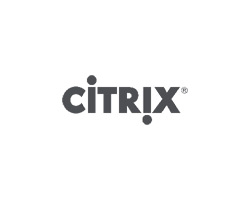Citrix has launched the latest version of its ByteMobile software, with a range of new features including the industry’s first internet radio traffic management capability.
ByteMobile 7 is designed to be deployed on the T-Series Adaptive Traffic Management System, which combines functions such as caching, application delivery, deep packet inspection (DPI), video and web optimisation, policy control and reporting and analytics into a single centrally managed element.
The T-Series solution currently enables operators to manage data traffic on a wide scale, consolidating multiple network elements into one, and has been deployed on several Tier-1 networks, according to the vendor.
ByteMobile pioneered video optimisation in 2009, and now under Citrix, the system has been extended to include audio as well.
A recent report by Citrix found that mobile music traffic currently generate almost 12 percent of network data in North America and at least four percent of the network data in other countries, due to the rise in popularity of internet radio apps and streaming music services.
While audio is still not as much of a problem as video, which generates more than 50 percent of total mobile data traffic on a network, mobile music is expected to grow exponentially as new services are launched, such as Apple’s upcoming iTunes Radio.
“The Internet radio optimisation feature in ByteMobile 7 operates, in part, by re-encoding the original song file using multiple different sampling rates. In some cases, that rate can be reduced by up to 50 percent, with the corresponding output still sounding as good to the mobile user as it would in full quality,” Citrix’s senior director of product management Fred Koopmans told Mobile Europe.
“The minimum bit rate can be set by the network operator depending on its needs and operators may choose to offer different bit rates to different subscribers based on class of user or a related policy framework.”
The audio optimisation and transcoding process, as with the web and video optimisation features, all take place within the T-Series Adaptive Traffic Management System, requiring no additional software to work.
In addition to optimising audio, video and web content, ByteMobile 7 also includes new patent-pending User Experience Indexing (UXI) network metrics, which enables operators to monitor, measure and score an individual subscriber’s experience based on factors that actually affect the experience, such as video and audio download and quality.
“When it comes to performance and features, we’ve discussed numerous techniques and technologies. This is really a constant quest to continue to improve the user experience, even as expectations continue to rise and as the number of protocols and apps proliferates,” commented Koopmans.
“We differentiate ourselves here in areas such as our ability to measure that user experience via our UXI technology and in our ability to respond quickly to new network challenges, with Internet radio being only the latest example.”



